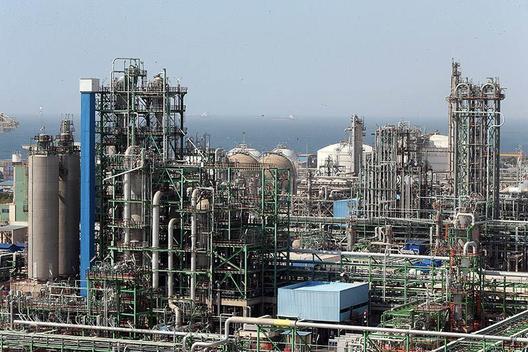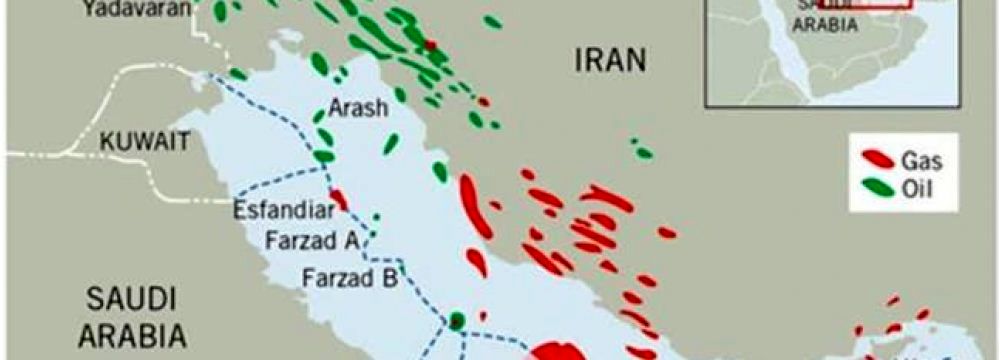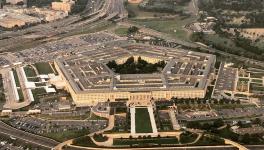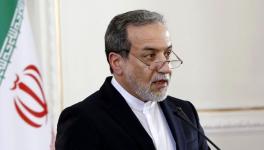India’s Loss of Farzad-B is Only the Beginning

Petrochemical complexes in Asaluyeh, Iran (File photo)
The PTI news agency has quoted ‘sources’ in New Delhi to the effect that the Farzad-B gas field project in Iran is slipping out of India’s hands. The curtain seems to have come down on the negotiations between the ONGC Videsh and Iran’s National Iranian Oil Company.
The official narrative is that there was a gap in pricing that couldn’t be bridged. Others say Iran lost interest.
Oil and gas are strategic minerals and it is only very rarely that ‘friendly price’ is offered. If at all, it will be for political reasons of an exceptional nature.
When it comes to Farzad-B gas fields, three other factors also come into play. One, the gas fields contain massive reserves (estimated to be around 21.7 trillion cubic feet.) That is to say, even tiny price variations can make exponential difference to Iran’s income.
Second, Iran may be sceptical about ONGC’s capacity to handle Farzad-B. ONGC Videsh is a minority shareholder in most of its projects overseas. It has 14 producing assets across several countries but depends predominantly (around 60 percent) on Russia for its annual output.
Recent reports suggested that due to a natural decline in fields and production cut commitments by key producers (following the OPEC+ decisions), ONGC Videsh is scaling down its capex plans (as, indeed, most upstream companies worldwide.)
Third, ONGC Videsh is also involved in exploration work in Israel as part of an Indian Consortium of government companies with participating interest of 25 percent. Now, Farzad-B is located on the Iran-Saudi maritime boundary in the Persian Gulf which is a hugely sensitive area.

Israel is increasingly a factor now in the geopolitics of the Gulf. Suffice to say, it was an incredibly foolish move on the part of the government to have pushed the ONGC Videsh into acquiring exploratory assets in Israel. (It followed PM Modi’s high-profile visit to Israel in July 2017.)
It seems the Modi government got bamboozled by the Israelis. Prime Minister Benjamin Netanyahu does quick thinking usually, and his intention might have been to torpedo the ONGC Videsh’s Farzad-B project where the Indian company had successfully done exploration work as far back as in 2008, established the huge potential for business and was on the home stretch negotiating the terms for production and marketing.
The ONGC Videsh’s contract in Israel runs till 2021. A sensational report with a shrill title in the Oil Price magazine today suggests that Israelis are smirking that they successfully killed a mega energy project that would have given a massive boost to India-Iran relations for a very long time to come.
Meanwhile, a 25-year, $400 billion economic pact between China and Iran is in the final stages of approval. Iran’s foreign policies are pragmatic and flexible but far from ad-hoc. Iran is a regional power and in the long game globally.
If the estimation was that a stopover in Tehran by External Affairs Minister S. Jaishankar in September would mollify Iran, things didn’t happen exactly that way. The lesson from Farzad-B is: Friendship should not be taken for granted and a beneficial relationship needs to be based on mutual interest and mutual respect.
But the loss of Farzad-B is only the beginning. The India-Iran relationship awaits a strategic setback. Looking ahead, the forthcoming Malabar Exercise with Australia’s participation heralds a tumultuous period ahead where India and Iran’s core interests will no longer be reconcilable.
Without doubt, India’s Quad strategy will complicate its relations with Iran. None of the Persian Gulf states (or Israel) will want to be part of the Quad, either, since they are in the same predicament as the ASEAN countries — stakeholders in a thriving economic partnership with China.
As the Quad navvies cruise together “submarine-hunting” in the Indian Ocean from their bases in India or Diego Garcia, the military alliance will loom large in Iran’s security calculus as a security challenge, especially in the northern tier of the Arabian Sea where Iran has a string of naval bases.
To be sure, the unfolding militarisation of the Indian Ocean” will only be seen as an expansionist policy by a host of regional powers — not only China but also Pakistan, Iran and, possibly, Russia — and most littoral states along Africa’s east coast.
It will isolate India in its region and will provoke counter-strategies eventually to contain India’s ambitions. After all, there is nothing like absolute security. No amount of waffling by Indian diplomats that Quad is not be regarded as anything more than the BRICS or SCO will convince India’s neighbours.
Get the latest reports & analysis with people's perspective on Protests, movements & deep analytical videos, discussions of the current affairs in your Telegram app. Subscribe to NewsClick's Telegram channel & get Real-Time updates on stories, as they get published on our website.
























